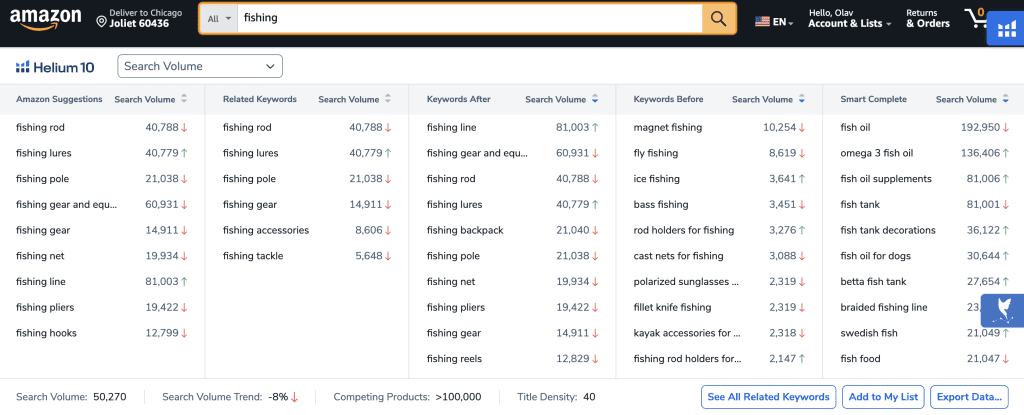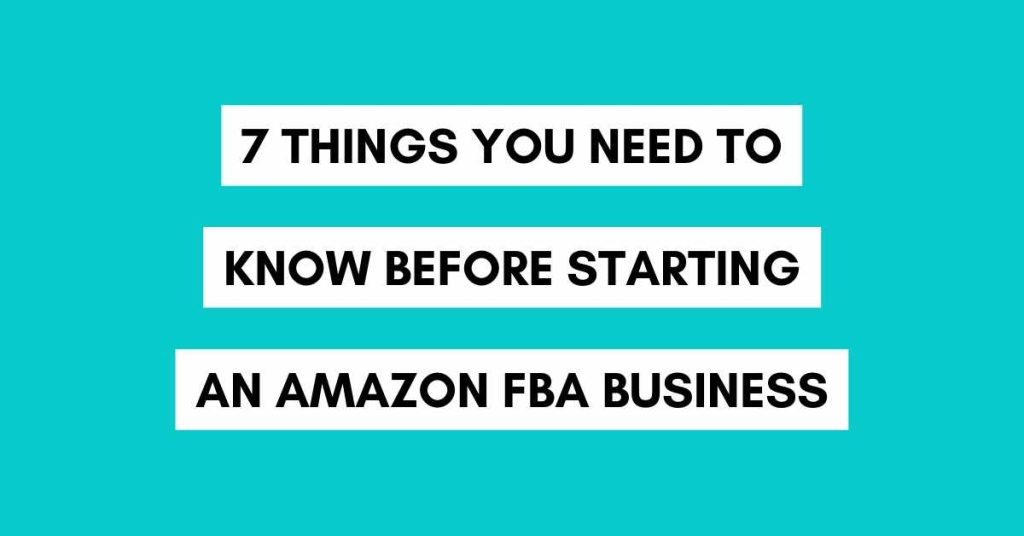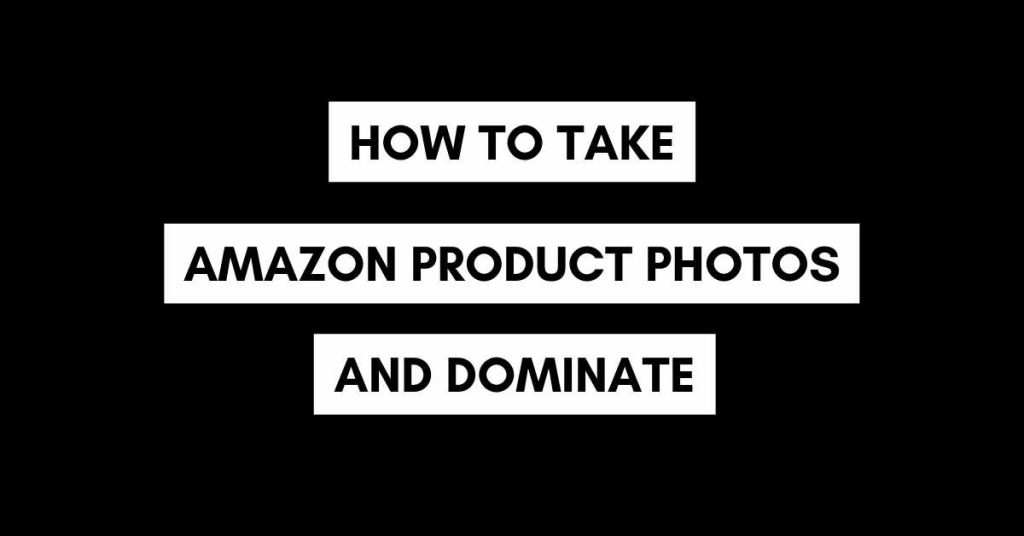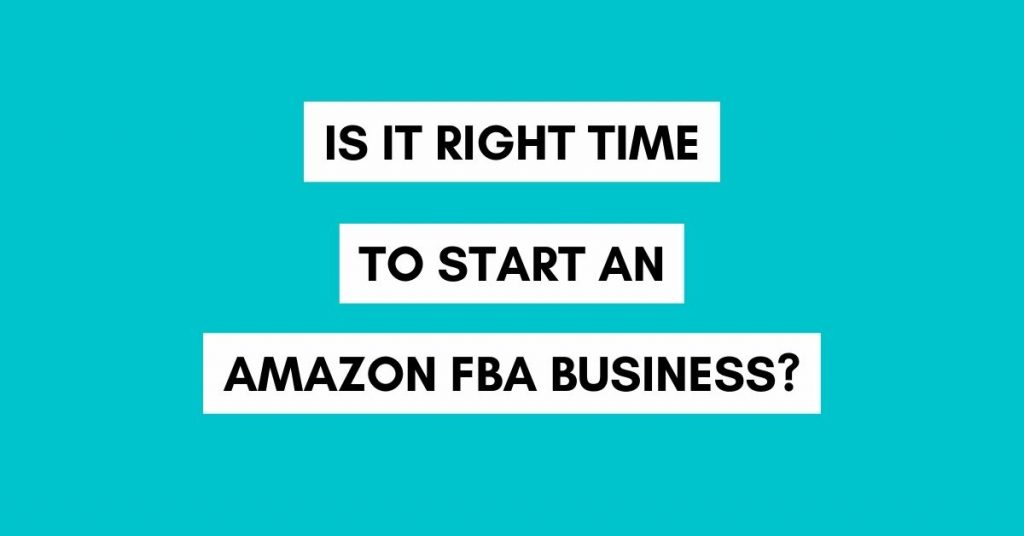In this blog post we are going to talk about how to choose a niche for Amazon FBA business. This is crucial if you want to succeed selling on Amazon. People usually underestimate this part but this could really make or break your Amazon business. If you do this part correctly then your Amazon selling journey will be a lot smoother.
Why is picking the right niche important when selling on Amazon?
Selecting the right niche is of paramount importance when selling on Amazon because it lays the foundation for your success in the highly competitive e-commerce landscape. A well-chosen niche allows you to target a specific audience with products that cater to their needs and interests, increasing the likelihood of attracting and retaining customers. Moreover, it enables you to stand out amidst the sea of sellers, reducing direct competition and potentially leading to higher profit margins. By aligning your niche with market demand and your own expertise or passion, you can establish a strong brand presence, optimize your marketing efforts, and ultimately position yourself for long-term growth and sustainability in the ever-evolving world of Amazon selling.
How to choose a niche for Amazon FBA business?
There are many ways to pick a niche for your Amazon business. Let’s explore them so you can dive in and build your Amazon FBA business the right way.
Something you’re passionate about
When most people want to start a business then the first thing they think about is “I want to do something I am passionate about.” If that works out for you, then it’s great. It does not work out for most of the people like that when they are starting out. Why is that? Usually what people are passionate about is very saturated market. For example doing yoga, fishing or anything else mainstream. If your passionate niche is mainstream and saturated then try to look for smaller niches inside these niches.
How to find less competitive nice on Amazon?
One way to find smaller niches on Amazon is just scrolling on Amazon and going deeper in the categories. For example if you like fishing then just type “fishing” in the search bar and you will see a following view (if you have Helium10 plugin).
As you can see then there are a lot of smaller niches what people are searching for on Amazon. You might first just had an idea for “fishing” but there are many smaller niches to choose from. For example “bass fishing” has a search volume of 3451 per month. Some people might think it’s not enough but it’s more than enough. Especially when you are starting out. Also when niche is very specific like “bass fishing” then customers buying intent is also higher. Customers who search for “fishing” could just be shopping around and scrolling on Amazon to see what’s on sale. They could also be shopping for fishing toys for kids. You never know. The more specific the niche is – the better.
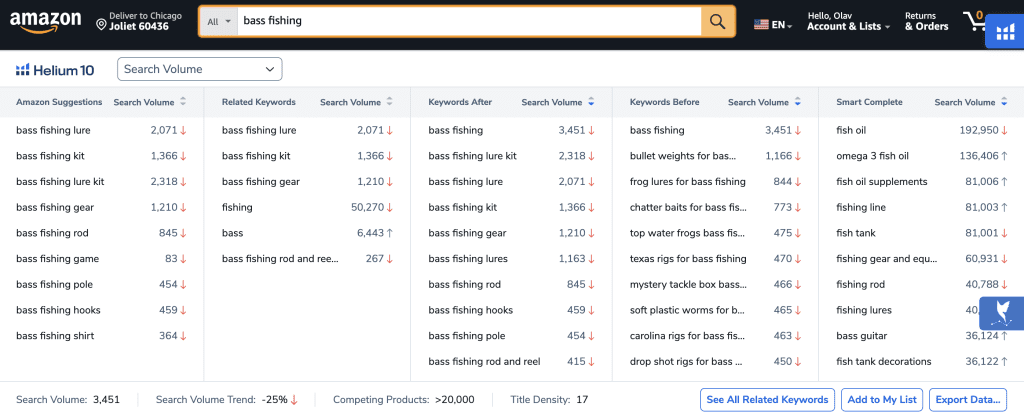

Once you have picked a new more specific niche, type that new niche on Amazon and see what comes up. Now you can see that there are even smaller niches inside “bass fishing”. This is where you need to analyze each one of these niches and see if there’s an opportunity for you. For example bass fishing hooks, rod, pole or anything else. Let’s go deeper and search “bass fishing lure”. We can see that people are looking for “bass fishing lure kit”. Once you think you have found the right niche it’s time to analyse the market. We have written another guide about how to do product research on Amazon and how to do keyword research on Amazon. Make sure you check these out as well.
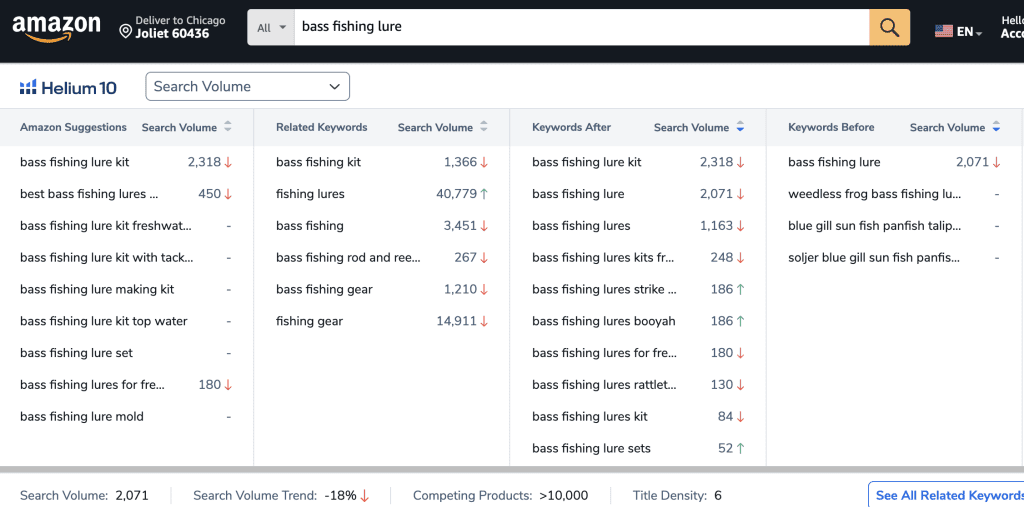

How to validate a niche on Amazon?
Once you have found your initial market then we need to analyze the demand and competition. For that search with your main search term, look at the products that come up and open Helium10 google chrome extension. For example as I am doing for “bass fishing lure kit”. Main thing we need to look here is “revenue” and “review count”. Ideally you’ll have to find products that are doing 10K-20K in sales and have only few hundred reviews. Here you can see that “bass fishing lure kit” niche is getting saturated and there are sellers with thousands of reviews. Some sellers have even more than 10 000 reviews.
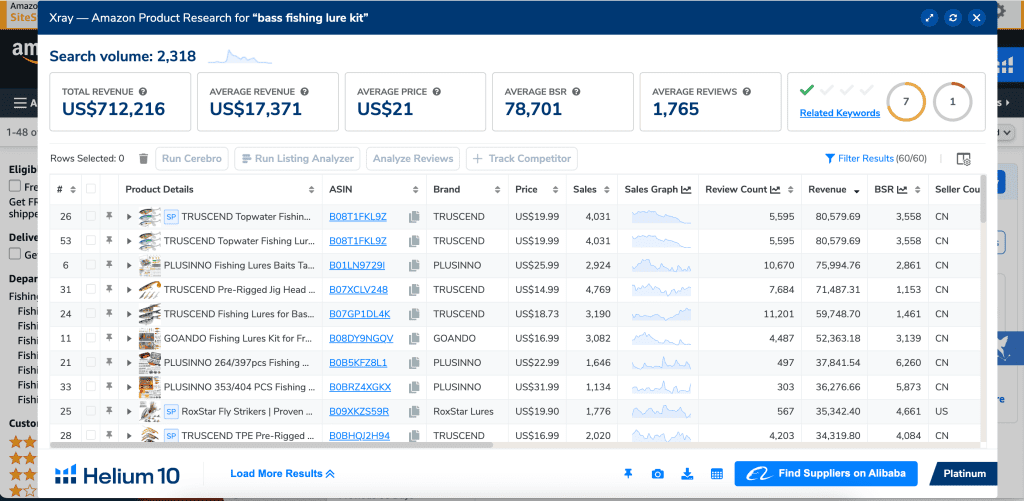

Now you have two options. You could try going back to the second step and look for other bass fishing niches. For example bass fishing game, bass fishing hooks or anything else. If it doesn’t work out, then go back to the first step and look for other fishing niches. For example “fishing net” and going deeper again in that niche to find less competitive product opportunities. If that doesn’t work out for you then you could start over again and choose another niche and again and again until you find your product to sell on Amazon.
How to find a niche with Helium10 Black Box
If above strategy doesn’t work out for you then there’s a great tool that helps you to pick a niche on Amazon and it’s called Helium10 Black Box. With Helium10 Black Box you can set certain filters like category, price, monthly revenue and more. Then hit search and it will pull up products that match that criteria. You’ll not find good products every time you hit search but it will give you new options that you wouldn’t have thought of yourself. You can do this as your first step to find possible product ideas and then go back to the steps we discussed in the first part of the blog post to validate the niche finally.
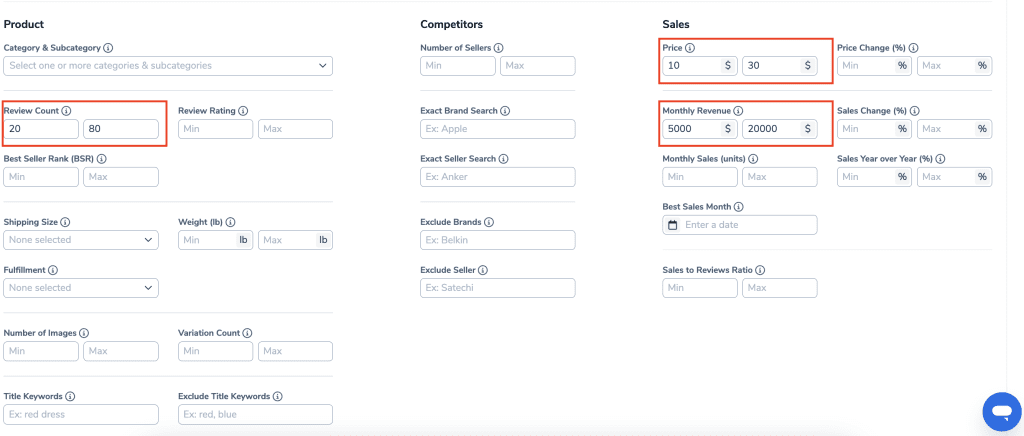

Other ways to find a niche for Amazon FBA business
Going to Amazon is usually the first place to find a niche if you want to start an Amazon FBA business but there are other places from where you could start as well. For example:
- Etsy
- Kickstarter platforms
- Alibaba
- And more…
All you need to do is look around, be openminded and do the research.
Other useful posts about Amazon FBA
What products to sell on Amazon?
How to do product research on Amazon?
Best product research tool for Amazon FBA
How to find low competition products on Amazon?
How to do keywords research for Amazon FBA?
What are Amazon FBA business setup costs?
How to choose a niche for Amazon FBA business conclusion
In conclusion, selecting the right niche for your Amazon FBA business is a critical step that requires careful consideration. It’s essential to strike a balance between market demand, competition, and your own interests and expertise. Conduct thorough research, analyze data, and stay attuned to emerging trends to make an informed decision. Remember that flexibility and adaptability are key in the ever-evolving e-commerce landscape, so be prepared to pivot if necessary. Ultimately, success in the Amazon FBA business hinges on your ability to align your chosen niche with a solid strategy, dedication, and a customer-centric approach.


